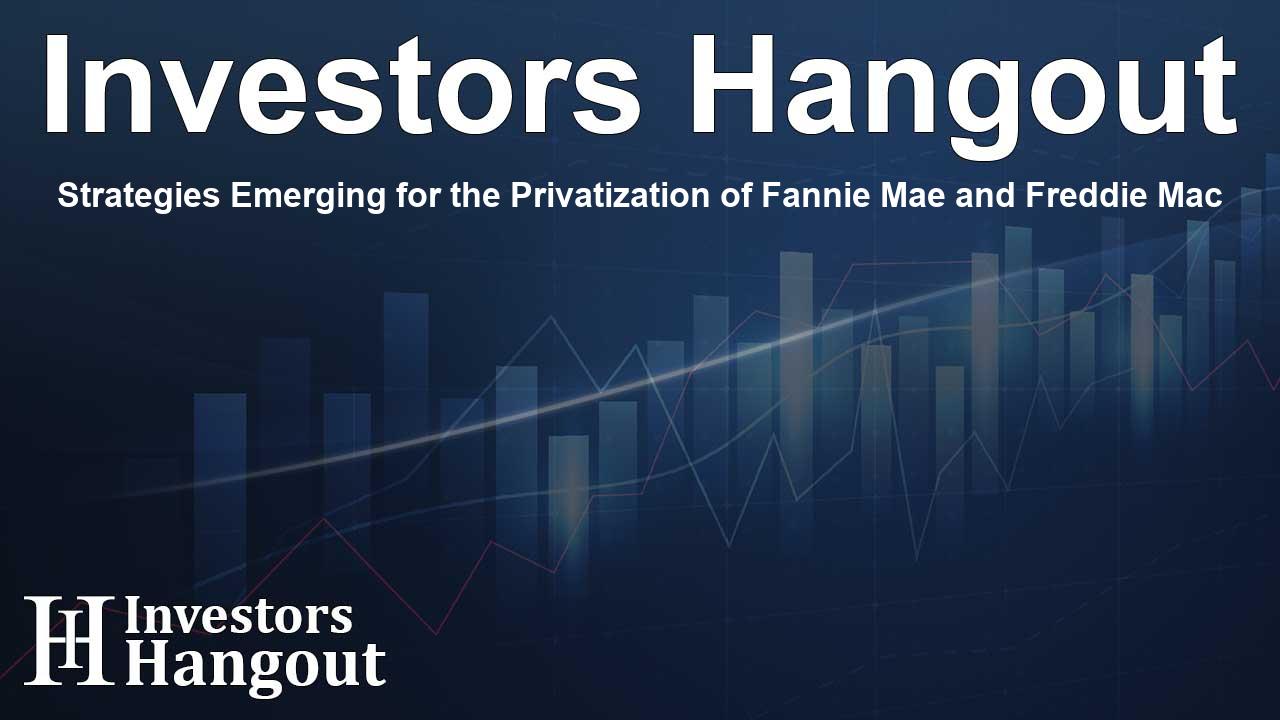Strategies Emerging for the Privatization of Fannie Mae and Freddie Mac

Trump Allies Looking into Privatizing Fannie Mae and Freddie Mac
Recent talks among former officials and bankers who worked with Donald Trump have brought attention to the future of mortgage-finance giants Fannie Mae and Freddie Mac. Reports and insights from industry insiders indicate that there are concrete plans to shift these entities away from government control.
Overview of the Discussions
These discussions have been ongoing since last spring, with investment managers being brought in for their expertise on how to navigate such a significant change. Key participants include Larry Kudlow, who previously led the National Economic Council, and John McEntee, the former director of the White House presidential personnel office.
Possible Financial Outcomes
Analysts have estimated that the government's holdings in Fannie Mae and Freddie Mac could potentially accumulate to hundreds of billions of dollars. A successful sale of these stakes could allow the government to shed over $100 billion in securities, which might lead to unprecedented stock and bond offerings.
The Importance of Fannie Mae and Freddie Mac
Fannie Mae and Freddie Mac are vital to the U.S. real estate landscape, providing essential support for 30-year home mortgages. Established by Congress, these organizations function as for-profit entities with private shareholders. They help increase home lending access by purchasing mortgages from private lenders and converting those loans into mortgage-backed securities for investors.
Past Efforts to Privatize
In Trump's earlier term, there were attempts to privatize these agencies, but those efforts ultimately fell short. Advocates for privatization contend that eliminating government oversight could help reduce the national deficit and bring value back to taxpayers.
Concerns Regarding Privatization
On the other hand, not everyone is convinced that privatization is the right choice. Critics argue that this shift could restrict credit access for potential homebuyers and increase financial risks to taxpayers if these institutions fail without government assistance.
Looking Forward
The prospect of privatizing Fannie Mae and Freddie Mac is sparking discussions about the future of mortgage financing in the U.S. As these talks progress, it’s essential to carefully consider how any changes might affect homebuyers, taxpayers, and the economy as a whole. Striking a balance between the efficiency of the private sector and accountability to the public will be crucial in any proposed reforms.
Frequently Asked Questions
What are Fannie Mae and Freddie Mac?
Fannie Mae and Freddie Mac are government-sponsored enterprises that enhance liquidity and stability in the mortgage market by purchasing loans and converting them into securities.
Why is there a push for privatization?
Proponents believe that privatizing these entities could lower the federal deficit and improve the overall efficiency of the mortgage finance system.
What risks are associated with privatization?
Critics warn that privatizing these entities might restrict credit access for homebuyers and increase risks for taxpayers, especially during economic downturns.
Who are the key figures in these discussions?
Key players in the conversation about privatization include Larry Kudlow and John McEntee, both of whom held significant roles in Trump's administration.
How could privatization affect homebuyers?
If these entities are privatized, it could lead to changes in mortgage availability, interest rates, and the overall stability of the mortgage market, which would directly impact homebuyers.
About The Author
Contact Ryan Hughes privately here. Or send an email with ATTN: Ryan Hughes as the subject to contact@investorshangout.com.
About Investors Hangout
Investors Hangout is a leading online stock forum for financial discussion and learning, offering a wide range of free tools and resources. It draws in traders of all levels, who exchange market knowledge, investigate trading tactics, and keep an eye on industry developments in real time. Featuring financial articles, stock message boards, quotes, charts, company profiles, and live news updates. Through cooperative learning and a wealth of informational resources, it helps users from novices creating their first portfolios to experts honing their techniques. Join Investors Hangout today: https://investorshangout.com/
The content of this article is based on factual, publicly available information and does not represent legal, financial, or investment advice. Investors Hangout does not offer financial advice, and the author is not a licensed financial advisor. Consult a qualified advisor before making any financial or investment decisions based on this article. This article should not be considered advice to purchase, sell, or hold any securities or other investments. If any of the material provided here is inaccurate, please contact us for corrections.
